If I Was Vaccine as a Kid Do You Need It Again
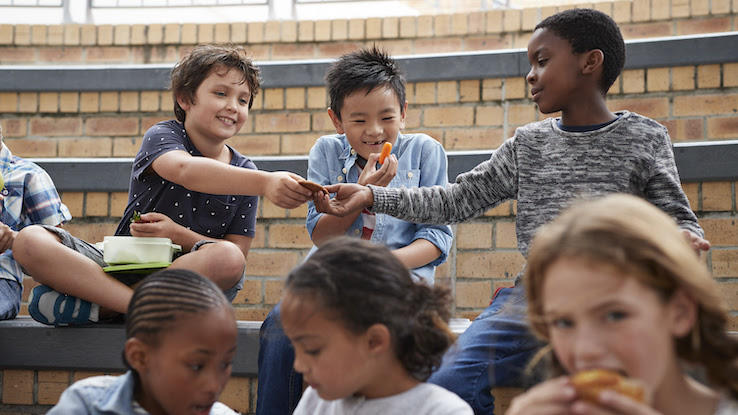
Without a doubt, 2020 was a hard year for all of us. For schoolhouse-aged children, navigating the COVID-19 pandemic safely besides entailed adjusting to virtual learning and distancing from their friends. But every bit many students render to the classroom — and as some enter a classroom for the get-go time — another hurdle looms. Only like adults, kids will accept to learn to exist around other people again, including peers with identities and experiences that differ from their own.
With this in mind, it's important to develop strategies to teach kids empathy and kindness early on, peculiarly as they brainstorm to socialize in person again. Activities like function-playing and reading are just a few ways to help students connect with their emotions too every bit the emotions of others. Here, we've rounded upward a few great activities that teach empathy — for kids and adults.
Students Can Emotionally Connect to Characters in Stories
Having story time with younger children or offering new reading textile to older children can exist a dandy opportunity for children to larn empathy. If illustrations are used in the story, yous tin run across if younger kids tin can name the emotions of the characters' faces. Ask the children how these characters might be feeling and if they take ever felt the same mode (scared, excited, etc.). Additionally, let them see that you are concerned for or connected to the characters likewise and so they can see that it'southward of import to care for the well-being of others.
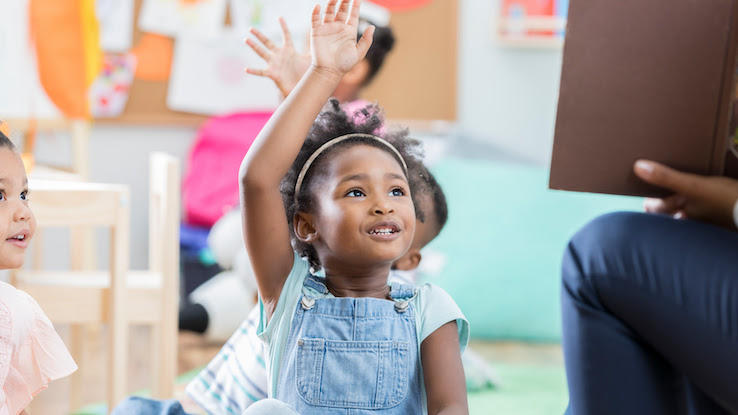
For kids who are older, teachers or parents tin provide special questions or periodical prompts to better empathize the characters in their books. The questions may ask scholars to imagine what the characters might experience when making different choices or in their current circumstances.
Older Children Can Write Out Feelings in an Emotion Journal
An emotion journal is a nifty way for kids to begin to connect with their own feelings. Teachers and parents alike tin can contain journal time at a certain point in the day to allow them to write about their highs and lows.
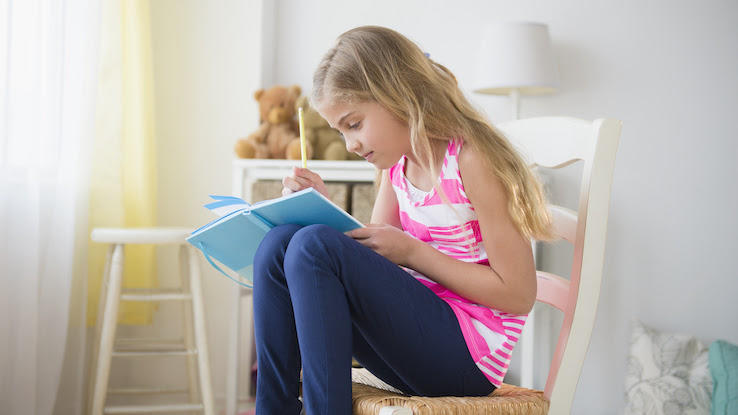
Children tin share parts of their journal entries with their peers if they are comfortable. Ultimately, writing out their feelings (and maybe sharing them with others) allows them to learn to limited themselves healthily. If kids discuss their feelings — or let them out in a salubrious fashion — they can begin to build empathy by relating to each other.
Random Acts of Kindness or Volunteering Volition Encourage Kids to Show Empathy
Doing random acts of kindness or taking part in a volunteer experience will help kids learn to recall well-nigh other people'southward feelings, and perhaps put them alee of their own. Teachers or parents can create a jar or nautical chart where a student can runway one act of kindness completed during the week.
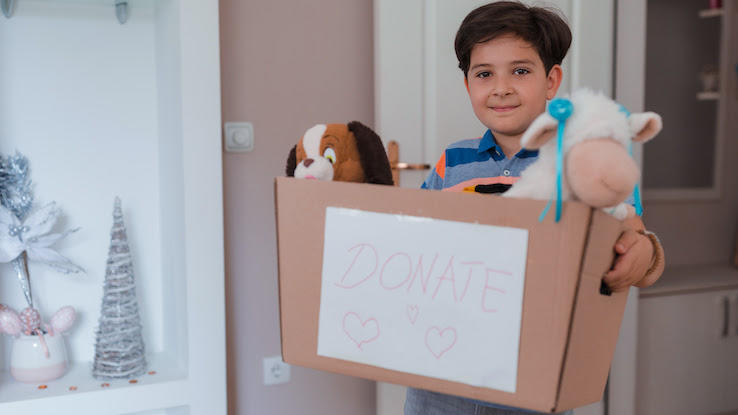
It'due south also great for children to talk over how beingness kind makes people feel practiced as opposed to bullying or mean acts that make people feel bad. Their beliefs tin be reinforced likewise by talking about how volunteering or the act of kindness fabricated them experience as well. Probable, they will be excited and happy that something they did helped someone else.
Children Can Create 'Feelings Collages' to Learn Emotions
For younger kids, especially those who are shy and serenity, creating a "feelings collage" will help them limited their emotions. With this unique collage, they can acquire to read faces, body language, and the emotions of others also.
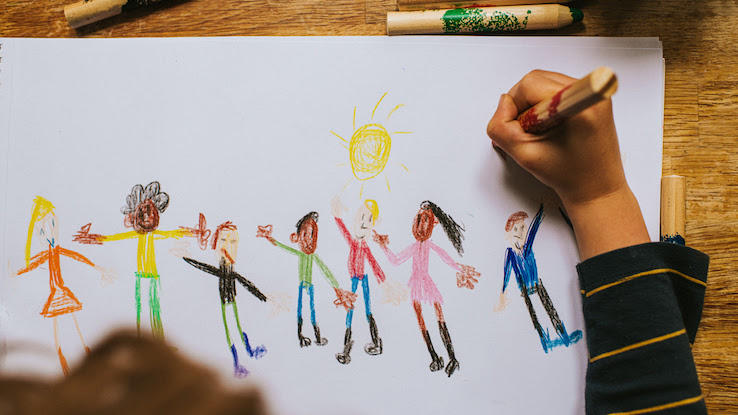
Children tin cut and glue pictures from magazines onto poster boards or construction paper. These pictures would have people expressing any kind of feeling (happiness, sadness, fearfulness, etc.). Kids could fifty-fifty characterization the images they glue with a feeling word, and, later, share with their peers if desired. The collages can exist used at schoolhouse or dwelling house to practice identifying and labeling feelings. If they desire to really get creative, kids can try their hand at creating drawings of unlike people with various emotions.
Imaginative Roleplay Helps Students See Emotions in Real Life
Roleplaying allows kids to see circumstances from a completely different perspective than their own. Teachers or parents can encourage children to step into the shoes of someone unlike from them, asking them most different scenarios like, What if you were at a new schoolhouse without any friends? or If you saw someone getting bullied, what would you do — and how would you lot feel?
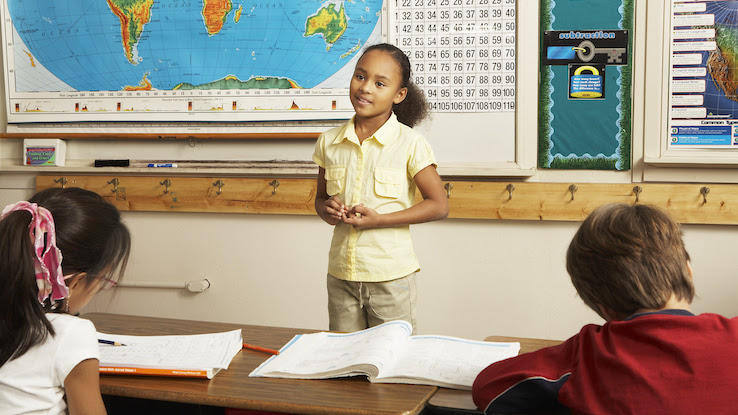
While watching someone human action out a "role," other kids could chime in about the faces or body language of the person. This allows them to learn to read people better, which can be a major pro in the time to come as an adult. Roleplaying similar this really helps put circumstances into perspective and even helps change behaviors. Plus, younger kids dear to play pretend, so it's a win-win!
Teachers and Parents Should Model Empathy to Kids
You've certainly heard of the maxim, "Practise equally I say, not as I do." That will certainly not help teach empathy. While kids may option up some good habits that are taught by parents, teachers, and other authority figures, children model what they meet, even if the adult isn't aware that they're existence observed. Kids are always paying attention, and so it's important to model empathetic behavior equally much every bit possible.
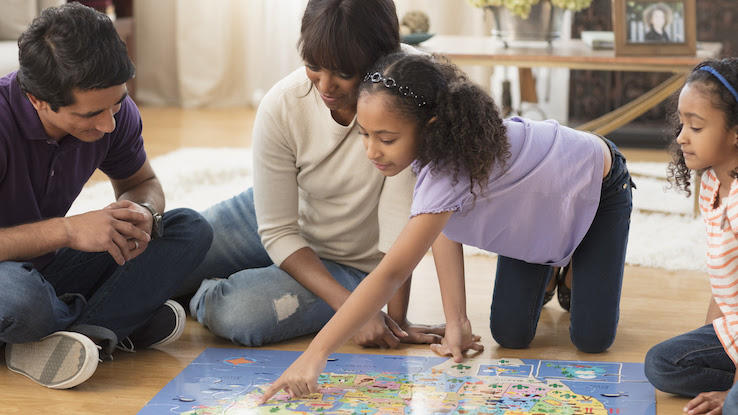
For example, teachers should be mindful of their interactions with other adults whether in-person or on screen. Parents should be careful not to snap at or belittle each other or their children at dwelling. While trying to completely avert conflict is impossible, how nosotros speak to and treat each other matters.
Resource Links:
- "Developing Empathy: 8 Strategies & Worksheets for Condign More than Compassionate" via Positive Psychology
- "20+ Strategies for Teaching Empathy" via Pathway 2 Progress
- "Empathy Activities" via Didactics Development Middle
- "5 Activities for Building Empathy in Your Students" via Brookes Blog
spellmanhatinarthady.blogspot.com
Source: https://www.symptomfind.com/healthy-living/activities-that-teach-empathy?utm_content=params%3Ao%3D740013%26ad%3DdirN%26qo%3DserpIndex
Post a Comment for "If I Was Vaccine as a Kid Do You Need It Again"